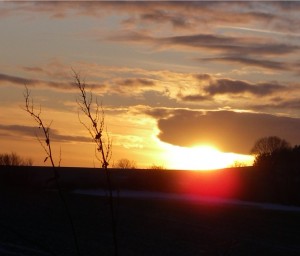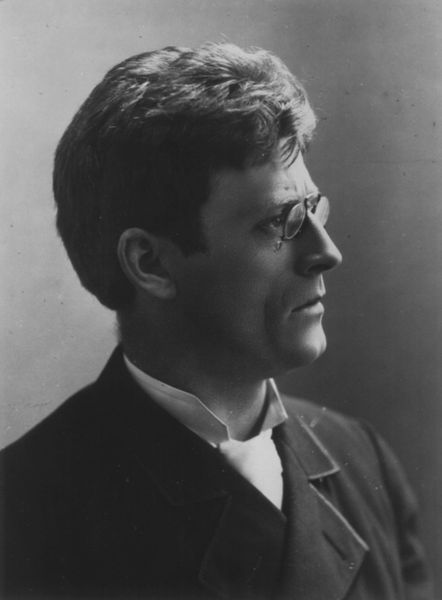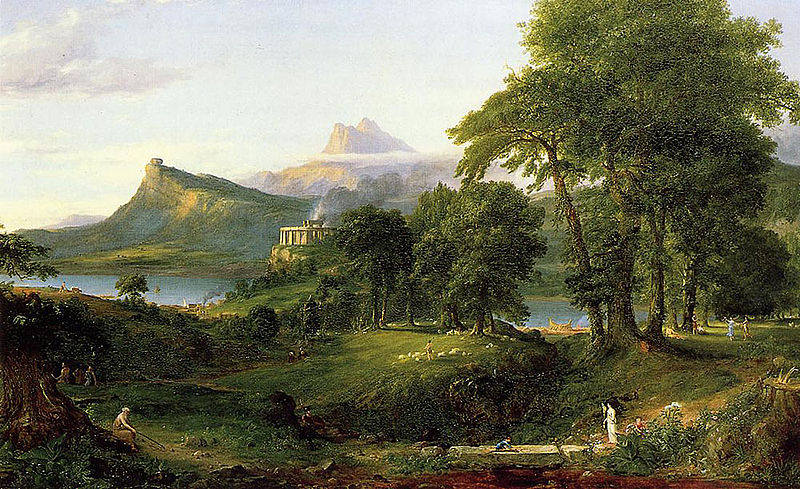 I can have trouble taking myself serious when I paint or write, even to an extent that it often makes me stop doing what I want to do. I mirror my own thoughts onto others and think that many people have no idea that something like painting is actually working, it requires a lot of effort, training and planning. I see them happily thinking: “I want that too. Nice to do nothing all day and to paint a little when ever you want.”
I can have trouble taking myself serious when I paint or write, even to an extent that it often makes me stop doing what I want to do. I mirror my own thoughts onto others and think that many people have no idea that something like painting is actually working, it requires a lot of effort, training and planning. I see them happily thinking: “I want that too. Nice to do nothing all day and to paint a little when ever you want.”
I have the same thoughts about writing. It seems to be useless, something you do when ever you want and most of all, when ever you don’t have anything better to do. But just like with painting, writing also demands a lot of practice, effort, learning (reading) and planning.
I suppose that we are not so much used to people who take time to practice and think about something. People who are not satisfied with the strong pace of the stream of entertainment and information that bombards us every day. Even in a normal workplace there won’t be much time to plan, train and think about things, as it will be more about producing and making money. So the writer or the painter is operating in a niche of its own. The one being most of the time at or around home, apparently doing nothing but having fun with words and articles, or drawings and paintings.
Now it is up to me to convince myself that practicing, just thinking or reading and learning are all legal actions.
Tag: Landscape Painting
-
Writers and Painters
-

Rilke, Rådlund and even Hamsun.
I thought this morning about the turns life can take, movements that confuse me as I want it to be linear.
I liked to write in the early 90’ties. But I replaced it by painting landscapes and was bit by it for more than a decade. This passion became impossible and I returned to writing, still longing for the same passion I felt for painting. Trying, wondering, giving up.
One of the things I ponder about is a fear of loosing possibilities to obtain some sort of fulfilment. If my life isn’t linear, how can I then get to the end of my possibilities? In other words: If I don’t choose and continue writing, or painting, or .. what…. how can I then develop?
In a discussion I was told that everything I have done has not been for nothing, it made me who I am, not who I could have been. There is no need to give up and let life pass. But I don’t always know how to continue.
Today.
Some weeks ago I heard a radioprogram about the music of Portugal, Fado. I got interested and googled it. This brought me to Swedish blogs about music and literature. Today I ended up on Bodil Zalesky’s blog where I found a post about the writer/poet Rainer Maria Rilke. I got interested because I know Rilke from my painting time – he wrote about the painters colony in Worpswede. She started a post with the wonderful sentences: “Kanske har jag aldrig läst någon Rilke-dikt här under trädet. Vilken ska då bli den första?”, and then she choose the following poem:
Wunderliches Wort
Wunderliches Wort: die Zeit vertreiben!
Sie zu halten, wäre das Problem.
Denn, wen ängstigts nicht: wo ist ein Bleiben,
wo ein endlich Sein in alledem? –Sieh, der Tag verlangsamt sich, entgegen
jenem Raum, der ihn nach Abend nimmt:
Aufstehn wurde Stehn, und Stehn wird Legen,
und das willig Liegende verschwimmt –Berge ruhn, von Sternen überprächtigt; –
aber auch in ihnen flimmert Zeit.
Ach, in meinem wilden Herzen nächtigt
obdachlos die Unvergänglichkeit.Rainer Maria Rilke
I had thought about the feeling of giving up that comes over me sometimes, but one resigns to do silly things if you want to make time pass. Indeed, I know actually, as Rilke says: Wunderliches wort: die Zeit vertreiben! Sie zu halten, wäre das Problem.
On the right side of Bodil’s blog is a place for “Senaste kommentarer”, and at the moment the latest is made by Christopher Rådlund. And I know him too from my painting time. This morning I noticed to my surprise that I couldn’t remember some names of painters I liked or corresponded with, but I recognized Chrishopher’s as soon as I saw it. He was my “secret tip” if people asked me for my favourite painters. It is always a remarkable feeling I get when my two worlds, writing and painting, meet.
In the post Christopher reacts on a discussion about artists and political opinions that can often be connected to them. This is something that is often being discussed, and these days also in connection with the celebrations of Knut Hamsun’s 150th birthday. One of the few books that made an impression on me – few, because I only read a few – was the first chapters of Knut Hamsun’s “Den Siste Glæde“. But as we know Knut Hamsun has connected himself actively to the Nazis during the 40ties and even 50ties. So did another favourite of mine, the writer of -I would almost say “the other book I once read” –Filip de Pillecijn. I am never sure how to deal with these connections, as I don’t think that artists and their works have to be thoroughly connected: a wonderful painting doesn’t have to be made by a wonderful person.
It all meant that while I was already thinking about my seemingly non-linear life, I went back and forth between writing and painting while I read a post or two. And as was mentioned to me during the discussion, because of my background I could get the most out of it. I better keep going.
Du musst das Leben nicht verstehen
Du musst das Leben nicht verstehen,
dann wird es werden wie ein Fest.
Und lass dir jeden Tag geschehen
so wie ein Kind im Weitergehen von jedem Wehen
sich viele Blüten schenken lässt.Sie aufzusammeln und zu sparen,
das kommt dem Kind nicht in den Sinn.
Es löst sie leise aus den Haaren,
drin sie so gern gefangen waren,
und hält den lieben jungen Jahren
nach neuen seine Hände hin.Rainer Maria Rilke

-
C.G. Rossetti – Dreamland
I read a handful of poems yesterday and liked two by C. G. Rossetti (1830-94). Easy to spot that she had something to do with the pre-raphaelite movement. In the poem Dreamland the same themes are apparent as in some of the paintings by this movement.
DREAM-LAND.
Where sunless rivers weep
Their waves into the deep,
She sleeps a charmèd sleep:
Awake her not.
Led by a single star,
She came from very far
To seek where shadows are
Her pleasant lot.She left the rosy morn,
She left the fields of corn,
For twilight cold and lorn
And water springs.
Through sleep, as through a veil,
She sees the sky look pale,
And hears the nightingale
That sadly sings.Rest, rest, a perfect rest
Shed over brow and breast;
Her face is toward the west,
The purple land.
She cannot see the grain
Ripening on hill and plain;
She cannot feel the rain
Upon her hand.Rest, rest, forevermore
Upon a mossy shore;
Rest, rest at the heart’s core
Till time shall cease:
Sleep that no pain shall wake,
Night that no morn shall break,
Till joy shall overtake
Her perfect peace.Source: gutenberg.org
I liked the image of the “waves into the deep” in the first couplet. It made me think that using nature to describe things is one thing, but using it right another. There is a world of difference between a painting of a landscape made by someone with an superficial eye or by someone with passion and devotion. Using nature in poems must be like that too. Yes, it has been done ever since people where able to write, and every symbol has been used numerous times (a rose, anyone?) but that doesn’t mean that it can be effective when used rightly.
The dead body let by a star and the contrast of the body “willingly” floating to the dark side, a side that is considered not a good place to be anyway, away from the rosy morn – fields of corn etc. is intriguing. -

Arcadia
Painting by Thomas Cole – The Course of Empire The Arcadian or Pastoral State 1836 (Source)In writing one can describe a perfect world. For some this might be a pre-industrial society in an ancient rural setting. Like a scene with peasants and shepherds, birds in the sky, green trees and wide open planes with mountains at a rugged coast at the background. I know from landscape painting that such a scene is often referred to as an Arcadia or a Pastoral scene. It is a subject in itself that has inspired thousands. I am not someone who reads a lot so I wonder about the writing world. There must be stories in contemporary literature using this theme for inspiration. Maybe even with a shepherd boy that meets and falls in love with a gypsy girl and lost sheep that will be found again. It is all possible and one can create the most beautiful painting and make it come alive. It’s a great way of expressing thoughts about alternatives to our own society and the life we live. When building a world like that one can write about the details to paint the picture. A tree, colour or situation. By describing simple things they will be transformed into words and thus become part of the new world created. If it can be done in painting it shouldn’t be a utopia in writing.